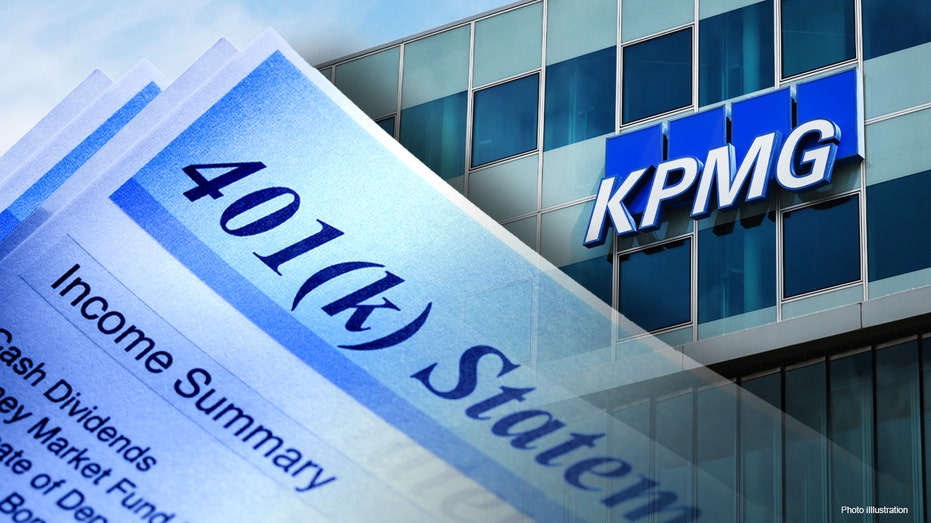The salaries offered to U.S. accountants and auditors last year climbed at their quickest pace in recent years, but industry observers say increasing pay alone may not be enough to remedy a national shortage of accountants.
Fewer people are pursuing degrees in accounting and starting new jobs in this area, resulting in more open positions for related roles and searches that take longer to complete. Accounting and auditing jobs have been long viewed by people in the profession as underpaid, undervalued, and less dynamic than positions in tech, investment banking, and private equity.
In addition to boosting salaries and offering signing bonuses, companies are turning to a number of other avenues to address the widening shortage of accountants, including relying more on temporary help and shipping work abroad. What’s more, industry groups and firms are courting college students and giving entry-level and junior accountants more responsibility than ever before, and providing new hires with flexible working arrangements.
"For what we do, the amount of work we put into it, and for as critical as we are to the overall health of the financial markets, it’s not paid enough," said Dane Dowell, an accounting and auditing consultant.

Close-up view of man and woman making account of family income. Writing down and calculating expenses. Attentive review of finance. Calculator on desk. Economy concept (iStock)
That could be starting to change, as firms appear to be raising their offers, likely a result of both wage inflation and the profession working to add more talent to its ranks, accountants academics and advisers said. On average, U.S. accountants and auditors’ offered-to-start salaries for entry-level positions rose 13% to nearly $61,000 a year in 2022 from the year earlier, compared with increases of 4% in 2021 and 2% in 2020, according to a review of job postings from Revelio Labs Inc., a provider of workplace data. Entry-level pay climbed by 21% to almost $67,000 this year through February, compared with prior-year periods.
Pay across five seniority levels, from entry-level through vice presidents, is also up. These average salaries climbed by 12% to nearly $87,000 in 2022 and by 9% to nearly $90,000 this year through February, compared with prior periods, Revelio Labs data showed. Entry-level workers hold roles such as staff accountant, accounting associate, and revenue auditor, while workers at the vice president level for example held positions such as audit manager, accounting manager, and finance director, Revelio said. Accountants and auditors at Big Four accounting firms and Fortune 200 companies, especially in major cities, typically are paid at the higher end of salary ranges.
"We were not keeping pace with what was happening with other professions and during the pandemic, certainly eyes were opened," said Sue Coffey, chief executive of public accounting at the Association of International Certified Professional Accountants, a professional organization, referring to the tech industry and some pockets of finance with higher entry salaries.
Many firms increased salaries multiple times throughout the year over the past one to two years, among other changes to compensation, she said. "Could we be paying more? Yeah, probably. But I do know that firms are doing all different things, like sign-on bonuses," Ms. Coffey said.

South Carolina Comptroller General Richard Eckstrom holds up accounting book. (AP Photo/Mary Ann Chastain, File)
At the University of Northern Iowa, graduating accounting students are receiving more opportunities and choices in entry-level roles in professional services than they had in previous years, for example advising on mergers and acquisitions, said Joseph Ugrin, head of accounting at the school. One master’s candidate was offered a starting salary of $99,000 at a Big Four firm’s Denver office, a figure previously unheard of, he said.
Entry-level workers are also shouldering more responsibility in these roles, Mr. Ugrin said. "I wouldn’t have imagined getting that level of responsibility for five or 10 years, back when I started," he said. "It’s just a sign of the shortage, that you need bodies to do work."
Eighty percent of college-graduate job seekers say a high starting salary makes them more likely to apply for a position, compared with 85% for job stability and 81% for benefits, according to a survey released in February from Handshake, a platform for professional networking and graduate recruitment. The respondents considered a high starting salary to be at least $82,000, the survey found.

College Commencement. (Photo by Paras Griffin/Getty Images) (Paras Griffin/Getty Images / Getty Images)
The Center for Audit Quality, one of several professional organizations stepping up their outreach, last year launched an effort to increase awareness about accounting opportunities among high-school and college students. The talent pipeline shortage across the accounting profession is a multifaceted issue, said Liz Barentzen, vice president of operations and talent initiatives at the CAQ.
"While increasing salaries should help to increase the attraction of available talent, we know that more needs to be done at earlier stages, years before recent graduates are in a position to consider job offers," Ms. Barentzen said.
Some members of the profession don’t consider the recent salary increases enough to boost the ranks of new entrants. The profession also carries a key barrier to entry—150 college credit hours required to become a certified public accountant, posing the costs of essentially a fifth year of school.
To build enthusiasm around the profession, firms, recruiters and professional organizations need to show accounting graduates that there is a significant technology bent to the work, which sometimes involves blockchains, artificial intelligence, and robotics, said Jim Brady, a former Deloitte & Touche chief talent officer and chief operating officer at Grant Thornton. Automation can both enrich certain accounting and auditing roles as well as reduce the need for other roles, thus addressing the shortage, he said.

TYSONS CORNER, UNITED STATES: A photo of Ernst & Young, is shown at their Tyson's Corner, Virginia, office 27 December 2005. ( Paul J. Richards/AFP via Getty Images) / Getty Images)
"I just don’t think giving a ton of 25% pay raises across the board is going to reverse what’s been building over the last two decades," said Mr. Brady, who serves as chief executive of a talent services arm of alliantgroup, a tax consulting firm. "We can’t just buy ourselves out of getting more people to go into the CPA profession."
Ginnie Carlier, Ernst & Young’s head of talent, said EY values job candidates with an "adventure mindset" in a post in February. EY said its entry-level compensation in audit and tax has increased, on average, by 23% since 2020. PricewaterhouseCoopers and Deloitte didn’t respond to requests for comment. Deloitte is a sponsor of the CFO Journal.
Still, attractive and competitive compensation is a key way for the industry to increase its ranks. KPMG has said it provided its largest raises in U.S. firm history in 2021, an undisclosed "double-digit percentage," and then in early 2022 said it was spending an additional $160 million on salary increases for its 35,000-person U.S. staff.
KPMG’s future salary plans will continue to be determined by the demand for talent, said Becky Sproul, KPMG’s talent and culture leader for audit in the U.S. "If things continue on the path they are today, then yes, we will continue to raise salaries in response to that," Ms. Sproul said.

KPMG logo (Jeremy Moeller/Getty Images / iStock)
Accounting firm Forvis LLP has been focused on offering salaries needed to maintain its plans for growth, Chief Executive Tom Watson said. Forvis, which was formed from a merger of BKD LLP and Dixon Hughes Goodman LLP last June, grew by more than 500 people since the deal closed, bringing its total staff of partners and employees to over 5,700, he said.
"The salaries are moving and those are going to be driven by market demands," Mr. Watson said, adding that firms also need the right culture and opportunities for advancement as part of their hiring strategies. "Every year, we’re working to set salaries that will get us the number of people that our profession needs to come in and if they’re too low, then you have to raise them up."

